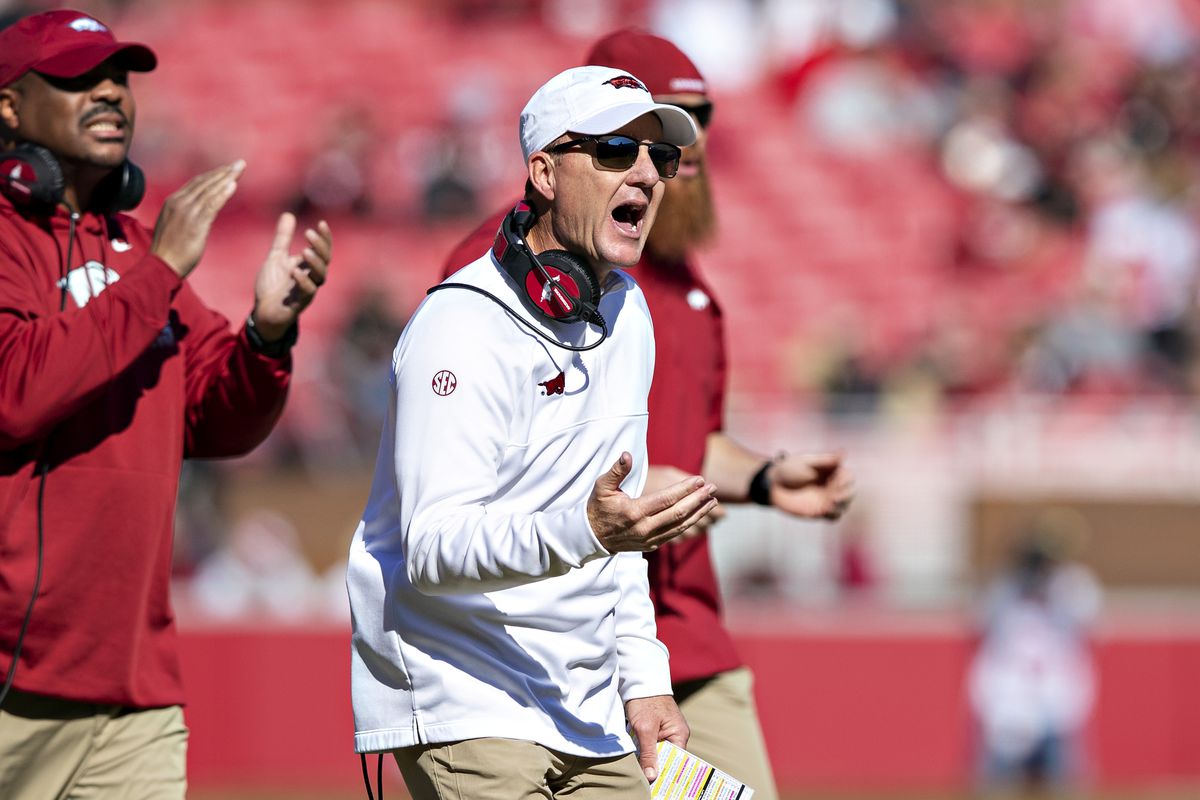Clemson Coach Dabo Swinney Reflects on Alabama Football Job Opening: Insight into One of College Football’s Most Coveted Positions
In the highly competitive world of college football, coaching vacancies at powerhouse programs invariably spark speculation, introspection, and candid commentary from some of the sport’s most respected figures. Recently, Clemson head coach Dabo Swinney offered a reflective and insightful perspective on the recent opening at Alabama, a position widely regarded as one of the most prestigious and pressure-packed roles in all of college football. Swinney’s comments not only shed light on his personal views regarding the job but also offered a window into the complex dynamics and immense expectations that come with leading the Crimson Tide. His reflections come at a pivotal time when Alabama football stands at a crossroads, navigating change and uncertainty following the departure of long-time coach Nick Saban, who built a dynasty defined by championship success, program culture, and sustained national dominance.
Dabo Swinney has long been a voice of reason and leadership in college football, known for his candor, positive demeanor, and a coaching philosophy grounded in relationships and development. His tenure at Clemson has been marked by remarkable achievements, including multiple national championships and the elevation of the program to consistent elite status. Given his experience navigating the pressures of a top-tier program, Swinney’s reflections on the Alabama job carry considerable weight. In a recent interview, he addressed questions about the job opening at Alabama, a subject that has dominated headlines and fueled intense debate across the college football landscape.
Swinney began by acknowledging the enormity of the Alabama coaching position, emphasizing that the role is not just about X’s and O’s but encompasses leadership at a national level. “It’s one of those jobs where you’re not just coaching a football team,” Swinney remarked. “You’re the face of a storied program with an incredible tradition. The expectations are sky-high, and the pressure is relentless.” His words underscored the unique challenges any successor to Nick Saban would face, inheriting not only a roster but also the mantle of a dynasty, with fans, boosters, and the entire college football world watching closely.
While he expressed profound respect for Alabama and its football heritage, Swinney was candid about the realities behind the scenes. The role demands more than just coaching acumen; it requires resilience, adaptability, and the ability to manage enormous external pressures. “It’s a job that requires a thick skin and a deep love for the game,” Swinney explained. “The expectations don’t just come from within the program—they come from a passionate fan base, media scrutiny, and the legacy left by someone like Coach Saban.” He noted that succeeding in Tuscaloosa means handling not only on-field challenges but also navigating the vast ecosystem surrounding Alabama football, from recruitment to public relations to alumni relations.
Throughout the interview, Swinney reflected on his own journey and how it paralleled some aspects of Alabama’s situation. He spoke about the patience and trust required to build a championship culture, drawing comparisons to his early years at Clemson. “It takes time to build something special,” he said. “People often want instant results, but true dynasties are built on a foundation of consistency, character, and leadership over the long haul.” This perspective offered a subtle reminder that while Alabama’s legacy is marked by swift success under Saban, the future leadership will need to maintain that trajectory with both vision and patience.
Swinney’s reflections also touched on the intangible elements that define successful programs. He emphasized the importance of culture, the environment that coaches cultivate, and the relationships forged with players. “It’s about more than just winning games,” he remarked. “It’s about building young men, preparing them for life beyond football, and creating a family atmosphere.” This holistic approach has been a hallmark of his success at Clemson and remains a guiding principle for coaches at the highest levels.
Regarding speculation about whether he would be interested in the Alabama position himself, Swinney remained diplomatic but clear. He expressed deep loyalty to Clemson and the community he has helped build over nearly two decades. “I’m fully committed to Clemson,” he said. “This is my home, and I’m invested in the players, staff, and fans here. Alabama is a great program, and whoever takes over will have a tremendous opportunity, but right now, my focus is on continuing the work we’re doing in Clemson.” His statement provided clarity amid swirling rumors while respecting the stature of Alabama’s program.
The broader implications of Swinney’s reflections extend beyond just Alabama and Clemson. They highlight the evolving landscape of college football coaching, where program stability, leadership philosophy, and the ability to manage unprecedented external pressures have become as important as technical coaching skills. The job of head coach at elite programs now demands a blend of strategic vision, emotional intelligence, and media savvy rarely seen before. Swinney’s comments provide a case study in how successful coaches view these demands and the ways they approach leadership in today’s high-stakes environment.
Alabama’s coaching vacancy has sparked a national conversation about what it means to lead a storied program through transition. The legacy left by Nick Saban casts a long shadow, creating both an aspirational benchmark and a daunting challenge for any incoming coach. Swinney’s reflections suggest that success in such a role requires more than pedigree; it demands a clear vision, steadfast leadership, and an ability to embrace both tradition and innovation.
As the search for Alabama’s next head coach continues, the insights offered by Dabo Swinney serve as a reminder of the multifaceted nature of this unique job. His perspectives on the pressures, responsibilities, and rewards encapsulate the delicate balance required to lead a program of Alabama’s magnitude. For fans, boosters, and college football observers alike, Swinney’s commentary enriches the dialogue around what the future holds for one of the sport’s most iconic programs.
In sum, Dabo Swinney’s reflections on the Alabama football job opening offer a nuanced, thoughtful viewpoint from one of the game’s most accomplished and respected coaches. His acknowledgment of the position’s demands, coupled with his emphasis on culture, leadership, and loyalty, provides valuable context as Alabama football embarks on a new chapter. While the role represents an extraordinary opportunity, it also carries profound responsibility—a responsibility that only a select few are prepared to shoulder. Swinney’s insights help illuminate the path forward, reminding all stakeholders that success at Alabama will depend not just on talent, but on vision, resilience, and unwavering commitment.
As college football continues to evolve, the lessons drawn from Swinney’s experience resonate across programs nationwide. Leadership in the modern era requires embracing complexity, fostering community, and navigating the expectations of a passionate, scrutinizing audience. Alabama’s next coach will need all of these qualities and more to build upon a legacy that has defined the sport for nearly two decades. Dabo Swinney’s reflections remind us that while the game is ever-changing, the core values of dedication, integrity, and relationship-building remain constant—the true foundation upon which lasting success is built.



